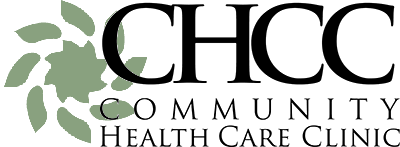CHCC Issues Statement Confirming and Committing to Address Health Disparities Among People of Color
The Community Health Care Clinic has received a $30,000 grant from the Institute for Healthcare Improvement (IHI) to participate in its Pursuing Equity Initiative.
The 18-month program will help us examine our current practices and develop policies and procedures in line with the IHI’s Pursuing Equity five-component framework:
- Make health equity a strategic priority
- Build infrastructure to support health equity
- Address multiple determinants of health
- Eliminate racism and other forms of oppression
- Partner with the community to improve health equity
This intensive process will include periods of action and learning punctuated by in-person workshops with IHI staff and fellow Pursuing Equity participants. Every level of our organization will engage in this initiative, from our board of directors to our staff and executive director.
We know that people of color face greater health disparities than their white counterparts. Over 25 years ago, local hospital and faith leaders founded the community’s first free clinic to provide medical care to McLean County’s underserved residents. These leaders envisioned a community where everyone has access to quality, affordable healthcare.
Despite the work of staff and volunteers at the Community Health Care Clinic in the last quarter-century, that vision has yet to be fully realized in McLean County and countless communities across the U.S.
We see this manifested at CHCC in our majority non-white patient population. We accept patients based solely on income and insurance status, yet 86% of our patients identify as people of color.
We also see data from the county’s Community Health Needs Assessment reflected in our hospital referral program: our county’s Black residents visit the emergency room at higher rates for numerous chronic conditions, from COPD and hypertension to heart failure and Type 2 diabetes.
These conditions are treatable and preventable with regular primary care. But for our county’s at-risk population, there still exist deeply entrenched racial, economic and societal factors that present barriers to accessing that care.
CHCC’s staff and board members support the Black community and all people of color in calling for an end to racism and the various forms of oppression and violence in which it manifests, from the recent killings of George Floyd, Breonna Taylor, and Ahmaud Arbery, among others, to the disproportionate impact of COVID-19 on Black Americans.
We would be remiss not to use this moment to reflect on our own role in perpetuating the systems that continue to produce these outcomes, and ask what we can do to work toward not just equal but equitable access to quality care in our own community.
This is just the beginning of what we hope will lead to not only an organizational but a community-wide transformation in the way we address the issues that disproportionately affect people of color.
